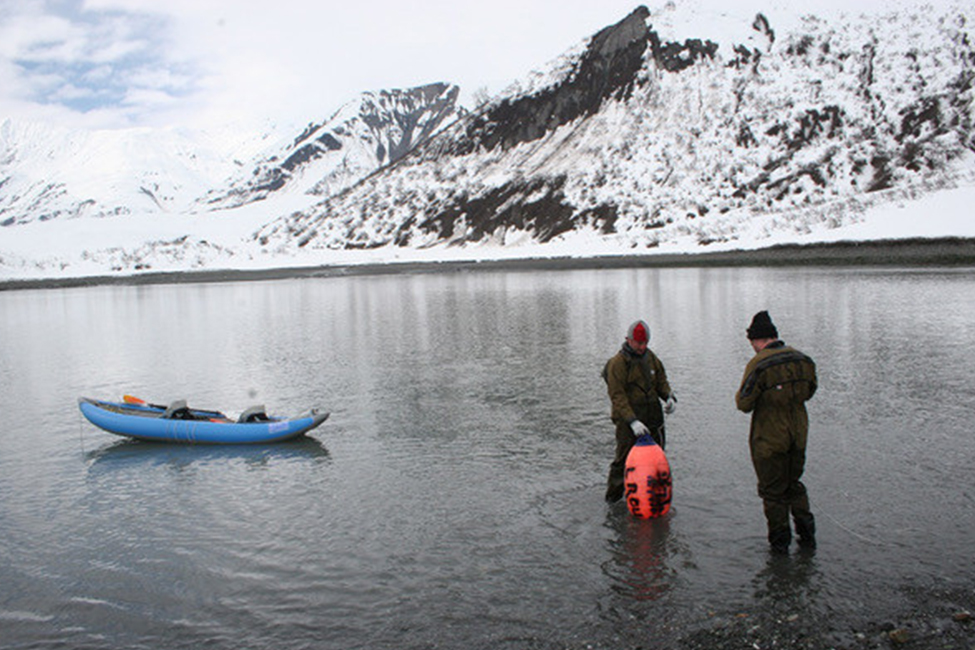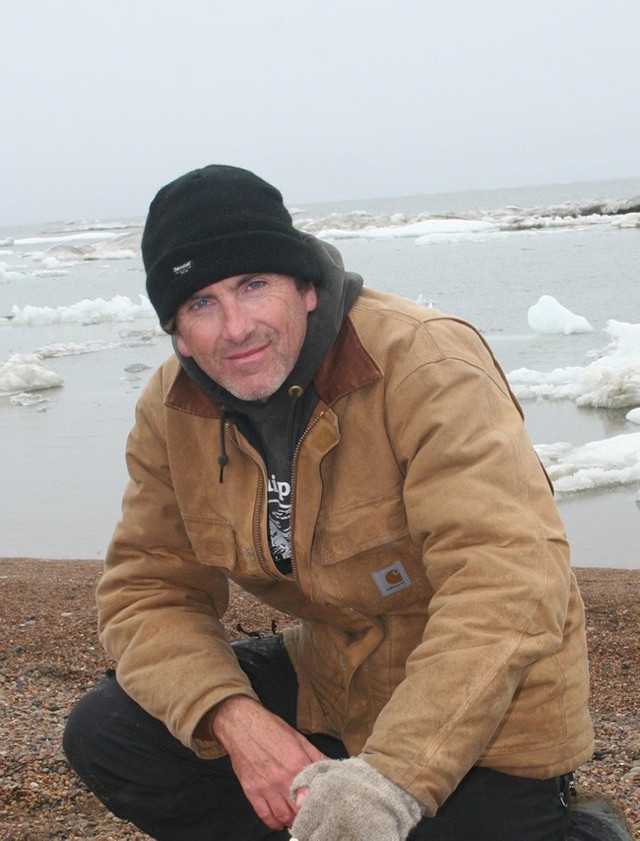ARCTIC EXPLORER: GREG O’CORRY CROWE
by Bethany Augliere | Monday, Jan 04, 2021
 When he’s not braving freezing temperatures and polar bears to study wild beluga whales in the Arctic or processing genetic samples in the lab, Greg O’Corry Crowe, Ph.D., a research scientist at Florida Atlantic University’s Harbor Branch Oceanographic Institute, can be found rocking out in Vero Beach as the lead singer in his cover band, Alternative Therapy, along with Chuck Fillizola, Dave Heroux and Dave Mundy. “We have some serious musicians in the group, which gives me some cover,” he jokes. “We just really enjoy ourselves and have fun.”
When he’s not braving freezing temperatures and polar bears to study wild beluga whales in the Arctic or processing genetic samples in the lab, Greg O’Corry Crowe, Ph.D., a research scientist at Florida Atlantic University’s Harbor Branch Oceanographic Institute, can be found rocking out in Vero Beach as the lead singer in his cover band, Alternative Therapy, along with Chuck Fillizola, Dave Heroux and Dave Mundy. “We have some serious musicians in the group, which gives me some cover,” he jokes. “We just really enjoy ourselves and have fun.”
Originally from rural southeast Ireland, Greg grew up with an appreciation and connection to nature. His dad was a veterinarian and a farmer, and they spent a lot of time together outdoors, working the field. His uncle John, also a farmer, imbued him with a deep respect for nature. Because of that, Greg describes himself first and foremost as a natural historian, “who likes to sit in nature and take joy from the small things, like the changing seasons.” In fact, while working from home during the pandemic he’s recently noticed the squirrels in his yard, zooming around the oak tree and wondering why they are all acting so berserk! It’s that same curiosity that drives his work as a scientist. “What is an animal doing, how is it doing it, but the ultimate question is always why,” he said.
Before coming to FAU’s Harbor Branch, Greg earned both his bachelor’s degree and his doctorate degree from the University College Dublin in Ireland, researching badgers, a small mammal related to weasels, minks and otters.
So, how did he wind up in Florida researching whales thousands of miles away?
Once Greg graduated with his doctorate degree, he moved to California in search of jobs. After facing several rejections, one person at the Southwest Fisheries Science Center in San Diego said he had a small project on belugas no one was working on. Shocked at such a unique opportunity to work with marine mammals, “I pounced on that,” he said. “And the rest as they say is history.”
Eventually, both he and his wife moved to South Florida for jobs, with Greg starting work at FAU’s Harbor Branch. His wife, Colette, is also a research scientist and CEO of Brilliant BioSciences. He continues to split his time between Florida and the Arctic, studying the local bottlenose dolphins of the Indian River Lagoon and the belugas up north. Next summer, he hopes to bring his teenage daughter with him as a field assistant.
Greg credits some of his success as beluga researcher to his small town upbringing with a strong sense of community. In the Arctic, he works with the locals and native partners to help him figure out the pressing questions. “Probably the most unexpected reward for working in the Arctic, for somebody like me who's just all about wild areas and wild places, was working with the people and learning about cultures, and learning how to be open and listen and learn from the locals.”
And that quiet, small town life is what he enjoys about Vero Beach. “As a family, we have really enjoyed living here,” he said. “We value being able to walk to the ocean every day. There are just things about this area you should never take for granted.”
Read more on portfolio magazine.